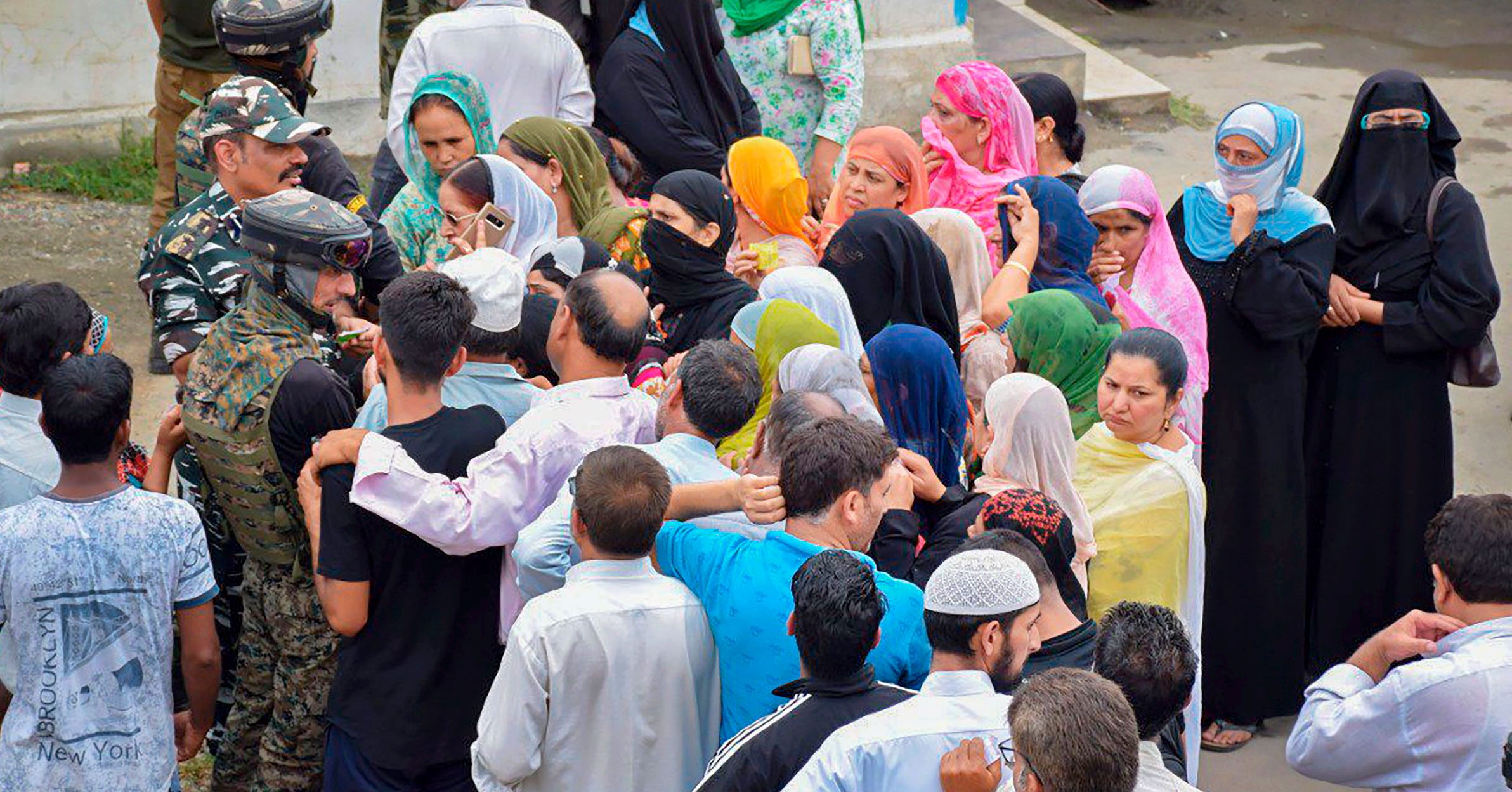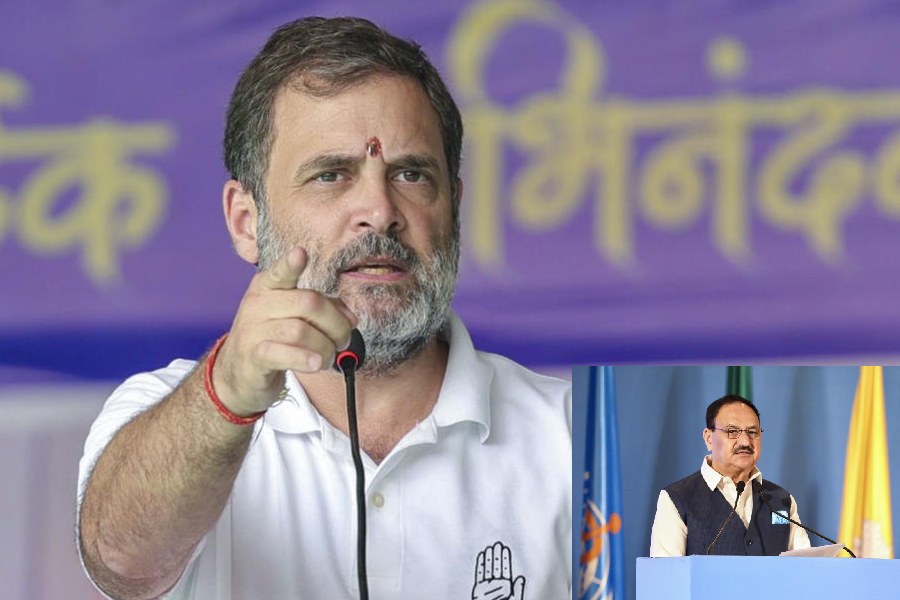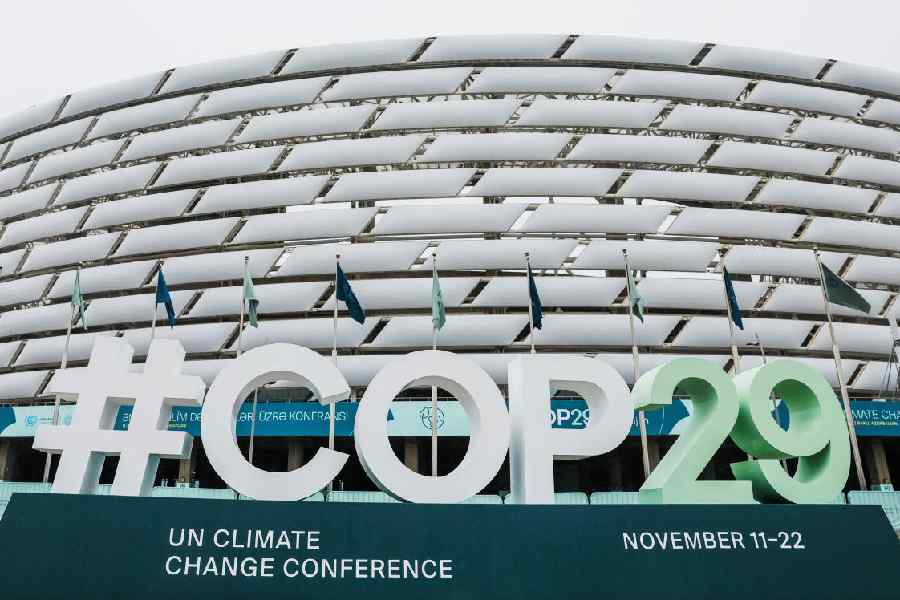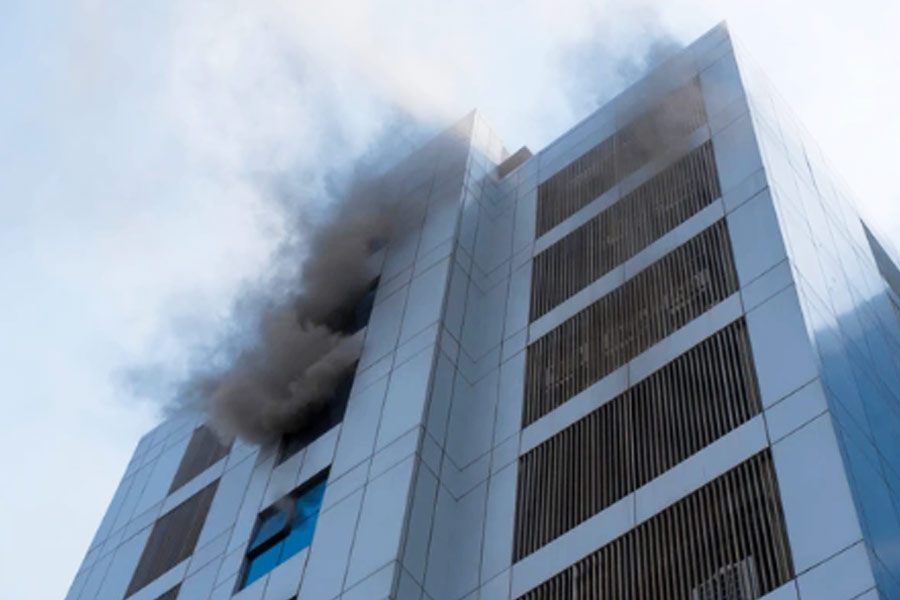Marufa Bhat waits outside the deputy commissioner’s office in Srinagar to make a phone call.
When she finally gets her turn after a two-hour wait, she calls up her sister in Delhi. But, overcome with tears and overwhelmed by circumstances, she can barely manage to speak. “My father underwent a coronary heart bypass surgery in Delhi. We returned recently and now the medicines are running out. That is why I had to reach out to my sister in Delhi,” said Bhat, holding her one-year-old-son.
Mohammed Ashraf collapses after a call to his son Hamas, and relatives gather around him to offer water. Hamas’s grandfather died five days ago and Tuesday was the earliest Ashraf could convey the news to him.
Two hours in the queue and just about two minutes on the phone — that’s what Kashmiris are having to settle for amid an unprecedented communications blackout.
Telephone lines have been set up at the deputy commissioner’s office in Srinagar for people to speak to their families and others outside the Valley.
With so much to tell and so many urgent messages to convey in a conversation that has to be carefully calibrated, sometimes two, maybe three, minutes just don’t seem enough as the words tumble out hastily and a variety of emotions overwhelm the callers.
Phone and Internet connections have remained cut off since the early hours of August 5, when the Centre announced that Jammu and Kashmir’s special status was being revoked and proposed that the state be split into two Union Territories.
Deaths in the family, business transactions, exams — the reasons for making phone calls are urgent and many.
The conversations usually begin in chaste Kashmiri with callers ever mindful of the many others behind them waiting for their turn.
The Jammu and Kashmir administration had said on Sunday that 300 public booths had been started but many people said they were unaware of such a move.
“Where are they?” asked Arsalaan Wani, who wanted to request his uncle in Chandigarh to fill up his National Eligibility Test form on his behalf. “I get dreams about my mobile phone ringing,” Wani said.
The restrictions imposed on people’s movement and communication may continue for some more days and any decision on lifting them will be taken by the local administration, a top government official in New Delhi said.
“If the trade-off is between inconvenience and loss of life, what should we choose? However, the administration is aware of the difficulties being faced by people and trying to minimising the inconvenience. Any such decision will be taken by the local administration,” the official said.
Jammu and Kashmir principal secretary Rohit Kansal said at a media conference in Srinagar that he was hopeful of further relaxations in the security clampdown.











